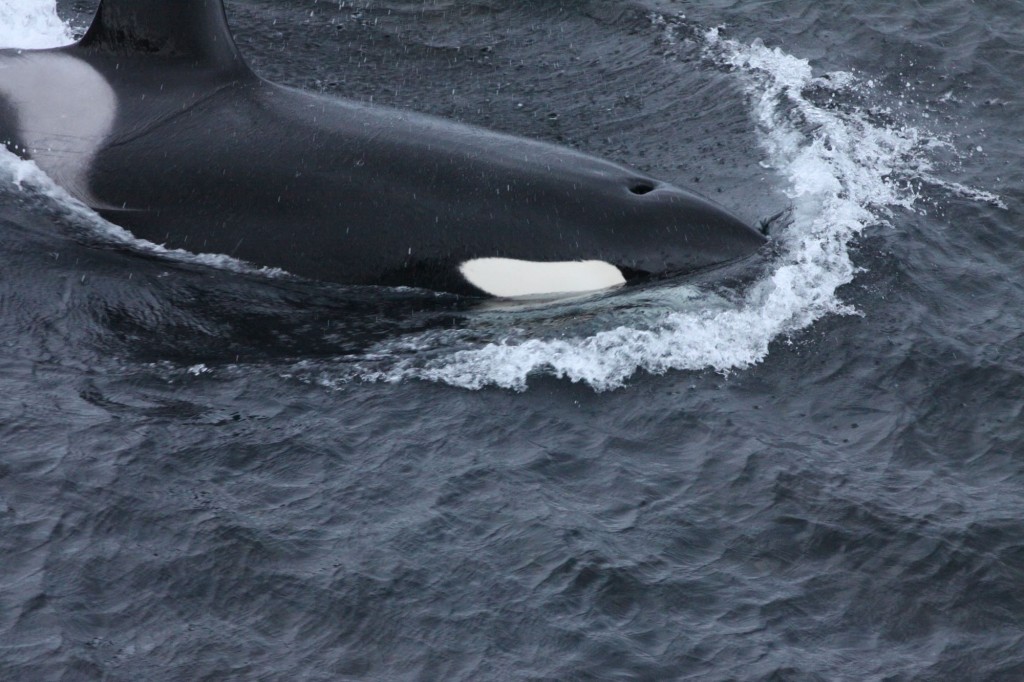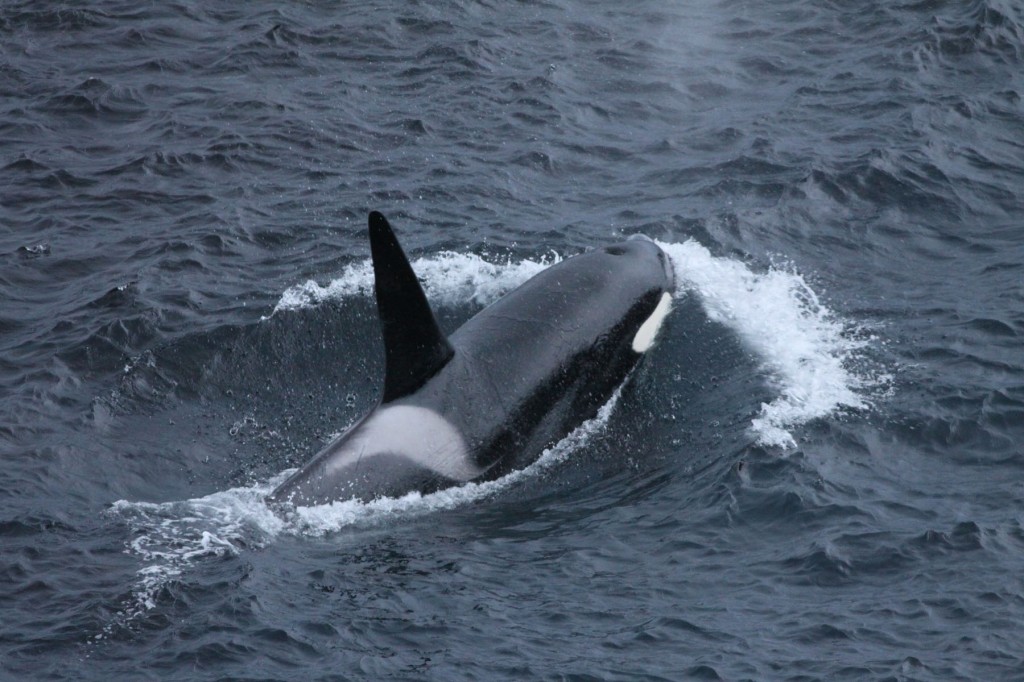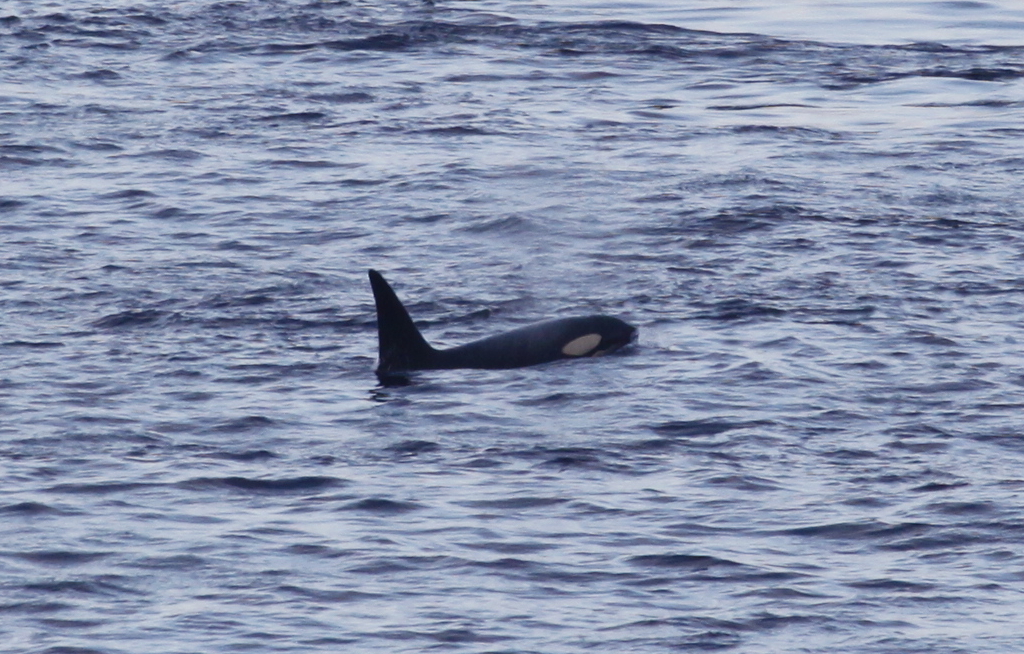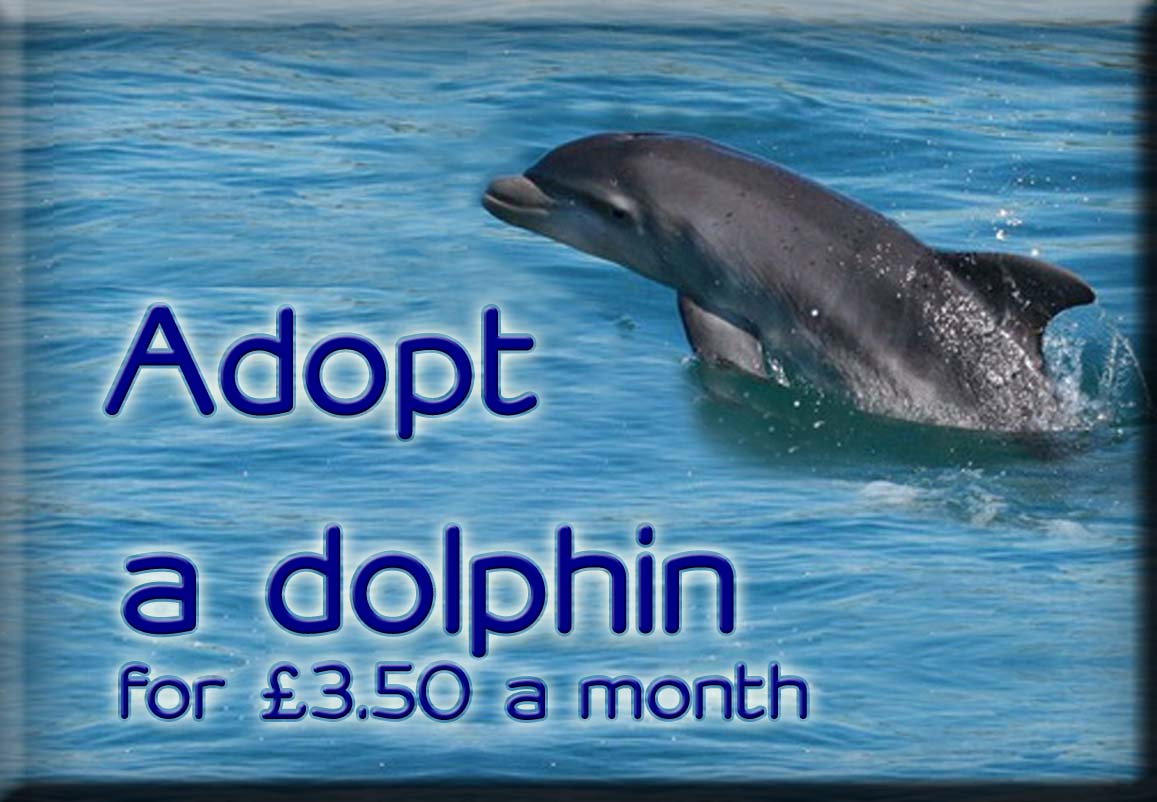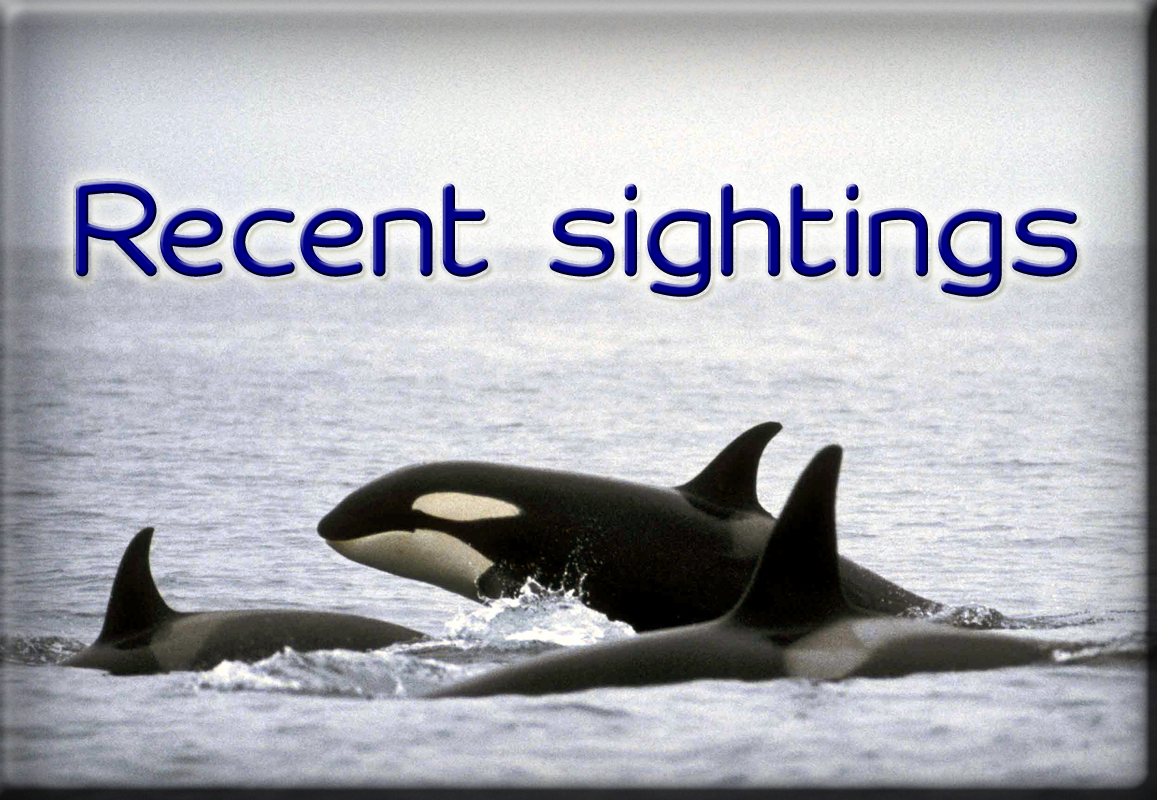Orcas are found all over the globe, from the poles to the tropics, and if you’ve always dreamed of seeing one in the wild you might not have to travel as far as you had thought.
In the UK we occasionally have visits from transient Orcas, travelling down to Northern Scotland in pursuit of their prey. Many of these visitors are from the Icelandic population of Orcas, and it is a real treat to see them in Scottish waters!
If you are hoping to catch a glimpse of these transient Orcas, it may be worth a trip to Shetland, Orkney, and Caithness where they are regularly seen. However, in the UK we also have a group of 9 resident Orcas that are regularly seen around the Hebrides, where it is commonly referred to as the West Coast Community. These animals are sighted year round, throughout the inner and outer Hebrides, particularly around the Small Isles and the Isle of Skye. These resident Orcas never mix with the transients from the North.
Each of our resident Orcas can be identified by their unique markings, and have been given names: John Coe, Floppy Fin, Nicola, Moon, Comet, Moneypenny, Aquarius, Puffin, and Occasus. In fact, until recently this was a group of 10 killer whales, however Lulu (a female in the pod) died of entanglement in fishing gear earlier this year.
The West Coast Community has been thought to be in decline for many years since they have never been seen with a calf, and after Lulu’s death some fear that our resident killer whale group is now too small to recover. John Coe is the most well known killer whale in the West Coast Community, and he was first recorded in Scotland in 1992. He is easily recognisable by the very clear notch in his dorsal fin.
Although this pod of killer whales is usually sighted in the Northern and Western waters of Scotland, they have been known to travel great distances and turn up in other parts of the UK. For example John Coe was spotted in Northeast Ireland in 2004, and in Pembrokeshire, Wales in 2007 and 2008.
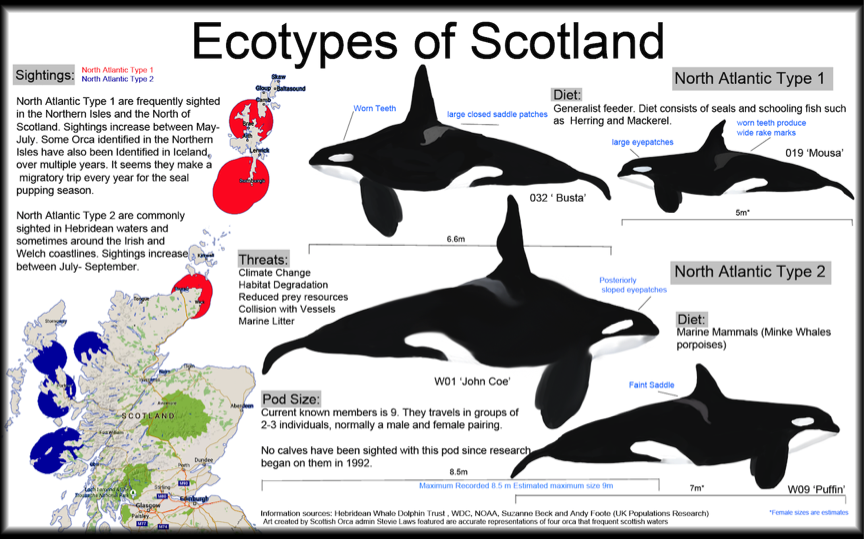
- Image credit: Scottish Orca UK Killer Whales blog.
Killer whales can swim at speeds up to 35mph, so they are able to travel large distances in a small amount of time. There have been several sightings of Orcas in other parts of England and Wales this year, however they are not yet confirmed. So if you are hoping to see one of these beautiful and fascinating animals for yourself, your best bet is a trip to Scotland. We wish you luck!
If you are interested in spotting Orcas, then Orca Watch 2017 will take place from the 20th to the 27th of May 2017 at Duncansby Head, Scotland. Read out Orca Watch in our blog here.
You can also join Sea Watch and do your own sea watching until then, you can see whales and dolphins all around the UKs coastline- more details are available on the website.
Written by: Jessica Rayner, Intern at Sea Watch Foundation 2016

